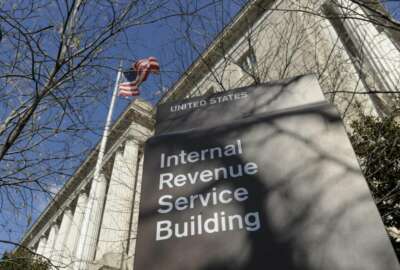

A whistleblower program at the Internal Revenue Service that pays tipsters a portion of the money they help recover saw a slump in payouts last year.
A whistleblower program at the Internal Revenue Service that pays tipsters a portion of the money they help recover saw a slump in payouts last year.
The IRS Whistleblower Office, according to the agency’s fiscal 2021 report, made 179 awards to whistleblowers worth more than $36 million. Whistleblower tips helped the agency collect more than $245 million that same year.
The amount the IRS awarded to whistleblowers last year is nearly half the approximately $70 million a year whistleblowers have received over the program’s 15-year history, on average.
Fiscal 2021 is the office’s lowest year for whistleblower awards since fiscal 2017, when it awarded $33.9 million to whistleblowers.
The IRS Whistleblower Office made its biggest payout to whistleblowers in fiscal 2018, when it awarded more than $312 million. Those whistleblower tips helped the IRS collect more than $1.4 billion in proceeds from non-compliant taxpayers.
The report’s findings underwhelmed whistleblower advocates, who are calling on Congress to strengthen the program through bipartisan legislation.
Since 2007, the IRS Whistleblower Office has paid out more than 2,500 awards to whistleblowers totaling over $1.05 billion. Whistleblower tips to this office have helped IRS to recover $6.39 billion from non-compliant taxpayers.
The Whistleblower Office staff last year had 41 full-time employees, with decades
of experience in a broad array of IRS compliance programs. The IRS also notes that the office went through a major reorganization “to better serve whistleblowers and accommodate program growth.”
The most common types of tips the IRS Whistleblower Office receives on any given year include unreported income, general allegations of fraud and false dependent exemptions.
The IRS held its first whistleblower round table discussion in June 2021. The agency said that discussion allowed industry representatives to hear directly from IRS leadership, ask questions, share thoughts and suggestions, and learn more about the agency’s programs.
Whistleblower attorney Stephen Kohn said in a statement that the report should serve as a “massive wakeup call to Congress,” and should lead to Congress passing the IRS Whistleblower Program Improvement Act.
“Whistleblowers need to have confidence — and IRS managers need to know — that whistleblowers will get a full independent review of any denial of a whistleblower award,” Kohn said.
The legislation, which Sens. Chuck Grassley (R-Iowa) and Ron Wyden (D-Ore.) introduced in June 2021, would give whistleblowers more latitude to appeal an IRS award determination to U.S. tax courts.
Under the current legal standard, tax courts may only hear an appeal on an award determination if the appeal is based on an “abuse of discretion.”
The bill would also exempt whistleblower awards from budget sequestration and would allow interest to accrue on whistleblower awards within one year of the IRS collecting proceeds from taxpayers.
A bill summary states whistleblower claims can take years to go through the IRS review and award determinations process, and that IRS whistleblowers have expressed concerns that the IRS has “sometimes dragged its feet on issuing awards,” even after the IRS has collected all proceeds.
Siri Nelson, executive director of the National Whistleblower Center, said that the report’s findings are “extremely disappointing,” considering last year marked a “banner year” for other whistleblower award programs, including whistleblowers submitting tips under the False Claims Act.
“The only people celebrating these low numbers for the IRS whistleblower program are the millionaire and billionaire tax cheats,” Nelson said, adding said the IRS whistleblower program has been key to major tax evasion cases.
Dean Zerbe, a partner at the law firm Zerbe, Miller, Fingeret, Frank & Jadav, said the IRS could improve the program by allowing for awards to whistleblowers who don’t meet the criteria of the mandatory award program.
Zerbe said the IRS also could enter into contracts with whistleblowers and their advisors, and expedite the backlog of cases that have been waiting for action by IRS legal counsel.
“The IRS and Treasury management need to take a hard look and recognize that the best program the IRS has for going after big-time tax cheats is in a ditch,” Zerbe said.
The IRS last month named John Hinman to serve as the Whistleblower Office’s director.
Zerbe said Hinman brings years of experience as an IRS employee in examination and audits.
“The hope is that as an IRS insider, Mr. Hinman can advance the ball on a key challenge for the IRS whistleblower program – having the program embraced by examiners and auditors in the field. Mr. Hinman will benefit from the experienced and dedicated professional staff of the IRS whistleblower office,” Zerbe said.
The 2014 Tax Relief and Health Care Act led to the creation of the IRS Whistleblower Office, as well as a new framework for whistleblower submissions.
Whistleblowers eligible to receive an award must have their disclosure signed and submitted under penalty of perjury. The disclosure must also be related to an action in which the proceeds in dispute exceed $2 million, and related to taxpayers whose annual gross income exceeds $200,000.
Under these conditions, the IRS will pay whistleblowers an award of at least 15% of the funds recovered, but no more than 30% of the proceeds in cases where a whistleblower “substantially contributes” to an administrative or judicial action that results in the collection of proceeds.
The IRS cannot make the award to a whistleblower until the taxpayer in question has exhausted all their appeal rights, meaning the agency generally cannot make award payments for several years after the whistleblower has filed a claim.
The report states that the COVID-19 pandemic led to a slowdown of the IRS whistleblower officer operations including intake processing, classification, payment processing, litigation and closures.
However, the whistleblower program’s operational processes have been fully restored, the report added, and is continuing to process claims “to the greatest extent possible.”
The IRS report states the Whistleblower Office completed three internal reviews performed by the IRS Office of the Chief Financial Officer, which found the office is showing effective internal controls.
Copyright © 2024 Federal News Network. All rights reserved. This website is not intended for users located within the European Economic Area.
Jory Heckman is a reporter at Federal News Network covering U.S. Postal Service, IRS, big data and technology issues.
Follow @jheckmanWFED



